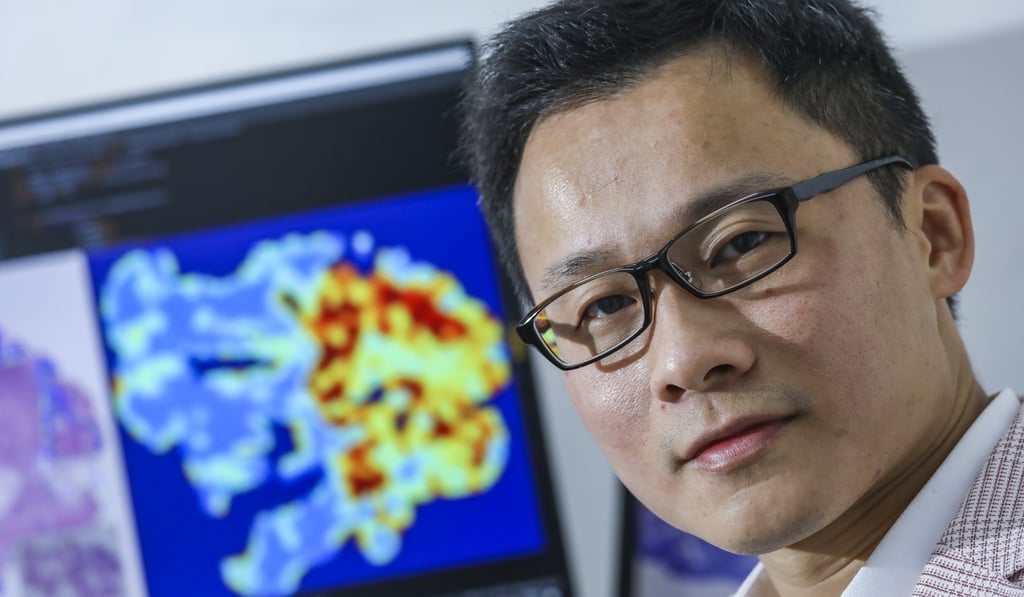Prize-winning coder itching to use AI for early cancer diagnosis, but Hong Kong hospitals stuck in digital dark ages
- Motivated by a family tragedy, Scotty Kwok would love to apply his knowledge of digital imaging and AI to improve detection of cancerous tumours
- However, the start-up he co-founded after quitting a bank’s IT department has no medical clients, and Hong Kong doctors still scan biopsies using microscopes

Instead of following his dream and pursuing a career as a programmer, Scotty Kwok Chun-ho, like many of his Hong Kong peers who graduated from computer science courses in the early 2000s, joined the banking industry and worked in an IT department. The dotcom bubble had just burst – and many promising opportunities had evaporated.
Despite earning a stable salary and the cachet of working for big banks, he never gave up his interest in coding and building software to solve social problems.
Over the past several years, he has entered six international competitions in the use of artificial intelligence to solve cancer-related problems. In 2018, he won his first championship at the International Conference on Image Analysis and Recognition (ICIAR) held in Portugal, beating more than 50 research teams to win the ICIAR 2018 Grand Challenge on Breast Cancer Histology images as a solo participant.
For the competition, he was given 400 digitised images of microscopic slides showing normal tissue, benign tumours, non-invasive breast cancer and invasive breast cancer. He used the images to train a deep learning programme to identify breast cancer in another 100 images.

Another challenge was to use deep learning to study 10 whole-slide images and locate breast cancer at different stages of development. Whole-slide imaging allows pathologists to navigate a virtual slide of biopsies in much the same way as people navigate Google Maps, and allows the use of computer-aided quantitative analysis which is more accurate and detailed than conventional analysis using a microscope.